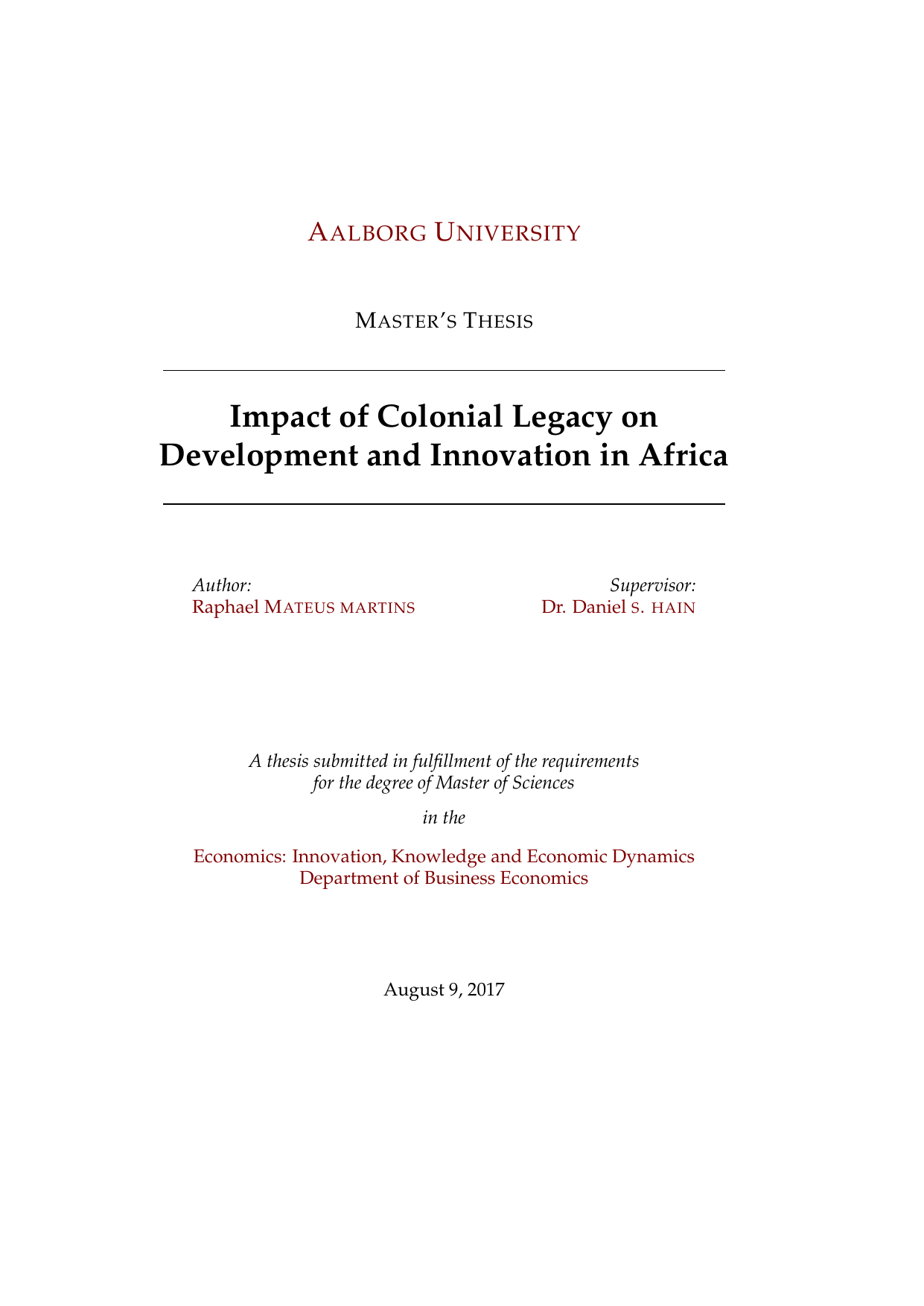
Impact of Colonial Legacy on Development and Innovation in Africa
Author
Term
4. term
Publication year
2017
Submitted on
2017-08-09
Pages
47
Abstract
Several Economic Historians have dedicated themselves to reveal the causes of the economic backwardness the African continent has shown for several decades. More recently, few economies in the continent have shown a strong increase in terms of revenue. This thesis attempts to link previously led research in the context of colonial legacy to the more recent notions of Innovation Capabilities which are seen as an important attribute to achieve economic development. This thesis seeks, hence, to join two Economic subjects that are rarely treated together: Economic History and Innovation Economics. Colonialism is here defined as an exogenous shock. The empirical setting aims at comparing 35 states in a span of 29 years and revealing the consequences of such a shock on the cultural, institutional and economic setup of colonized economies. Moreover, a special attention is given to the impact of continuing relationships between the former colonizing power and the colony as a trigger of convergence in terms of innovation capabilities and economic development. The main findings suggest that Political and Social transformations during the colonial period had a significant effect on the post-colonial Institutions. In a second stage, Institutions demonstrated to be significant related with levels of Innovation and technology as well as absorptive capacity suggesting that colonial transformation set the base for Institutions with long term effects on the Economic Development of the country. Furthermore, the continuing relationships between the former colony and its colonizer have a mix effect and suggests thorougher investigation at the country level. Finally, the Thesis sets the path to a possible way of defining new policy implications taking into account the long-term effects of Historical legacy.
Keywords
Documents
